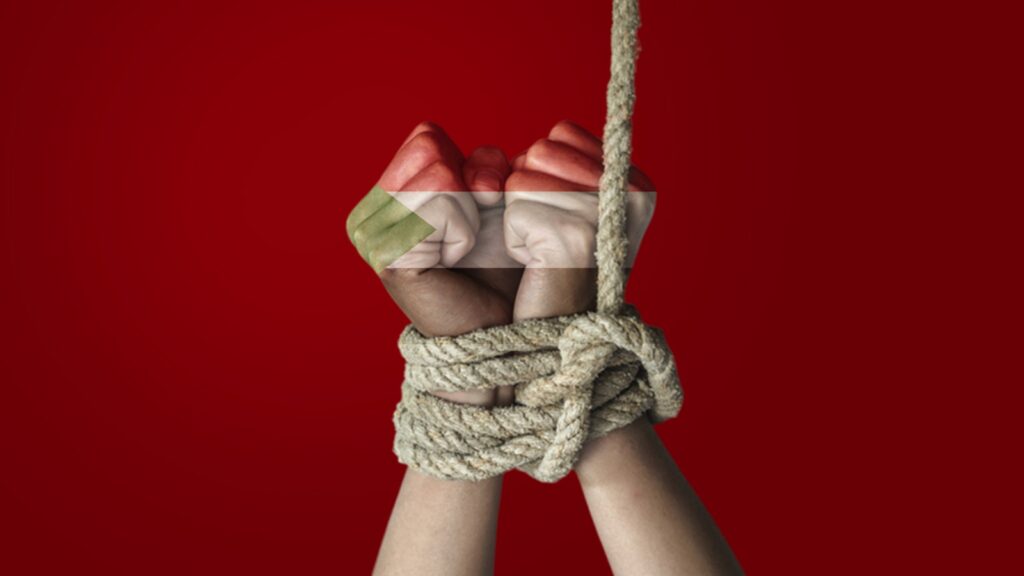The history of torture and brutality in Sudan is a grim testament to the lengths to which authoritarian regimes will go to silence dissent. For decades, Sudan’s security apparatus, particularly under the rule of Omar al-Bashir, has been accused of perpetrating severe human rights abuses, including torture, rape, and extrajudicial killings, often without due process. These acts were frequently carried out in secret detention centers known as “ghost houses,” where countless Sudanese citizens suffered and perished.
A Historical Context of Repression
Sudan’s legacy of state-sponsored violence can be traced back to the early years of Omar al-Bashir’s regime, which began in 1989 following a military coup. This coup was orchestrated by the Muslim Brotherhood, which aligned itself with the Sudanese military to establish an Islamist state. Under this alliance, the government quickly moved to consolidate power, implementing policies that stifled opposition and silenced any form of dissent. Without due process, countless individuals were detained, tortured, and even killed under the pretext of national security.
These violations intensified in the 1990s and 2000s, as the government sought to quell insurgencies and opposition movements across the country. The infamous National Intelligence and Security Service (NISS), known today as the General Intelligence Service, became the regime’s primary tool for enforcing its brutal policies. The Muslim Brotherhood’s influence over the army and security forces ensured that these practices were carried out with ruthless efficiency. This period saw the rise of “ghost houses,” secret detention facilities where political prisoners were subjected to unimaginable horrors. Many of these detainees were never seen again, their fates sealed by the inhumane practices of torture and extrajudicial execution.
Numbers That Speak of Pain
The scale of these atrocities is staggering. While exact figures are difficult to obtain due to the secretive nature of these operations, human rights organizations estimate that thousands of Sudanese citizens were tortured or killed during al-Bashir’s rule. Some reports suggest that over 1,000 individuals died in detention between 1989 and 2005 alone. The notorious Omdurman incident, where over 300 civilians were killed during anti-government protests in 1990, remains one of the darkest chapters in Sudan’s history.
The December 2018 Revolution, which eventually led to al-Bashir’s ousting, was marred by similar violence. The case of Ahmed al-Khair, a teacher who was tortured to death by security forces in 2019, shocked the nation and the world. Despite attempts by the authorities to deny or cover up the incident, his death became a symbol of the revolution’s fight against oppression.
Continuing Tragedies: The Post-Revolution Reality
Even after the revolution, the cycle of violence and torture continues. In 2024, nearly five years after the revolution, the death of a young man named Amin Mohamed Noor in Kassala, Eastern Sudan, once again highlighted the persistence of these brutal practices. Amin was reportedly tortured to death by members of the security forces, a grim reminder that despite the change in leadership, the culture of impunity and brutality remains deeply ingrained. This incident has sparked widespread condemnation from all civilian parties in Sudan, further highlighting the ongoing struggle for justice and human rights in the country.
The Muslim Brotherhood’s influence within the army continues to fuel these conflicts, as the military remains deeply embedded with the ideology that has long justified these human rights abuses. Civil society in Sudan continues to struggle against these injustices, but their efforts are often met with violent repression.
A Call for Justice
As Sudan grapples with its troubled past and present, the question remains: how long will the people of Sudan endure this cycle of violence and repression? The international community and human rights organizations must continue to pressure the Sudanese government to hold those responsible for these crimes accountable, including the Islamist factions that continue to wield significant power within the military.
The fight for justice in Sudan is far from over. The victims of torture, those who perished in “ghost houses,” and the countless others who continue to suffer deserve more than silence. They deserve a nation that upholds the rule of law, respects human rights, and brings an end to the dark legacy of torture perpetuated by a Muslim Brotherhood-led army that has plagued Sudan for far too long.



